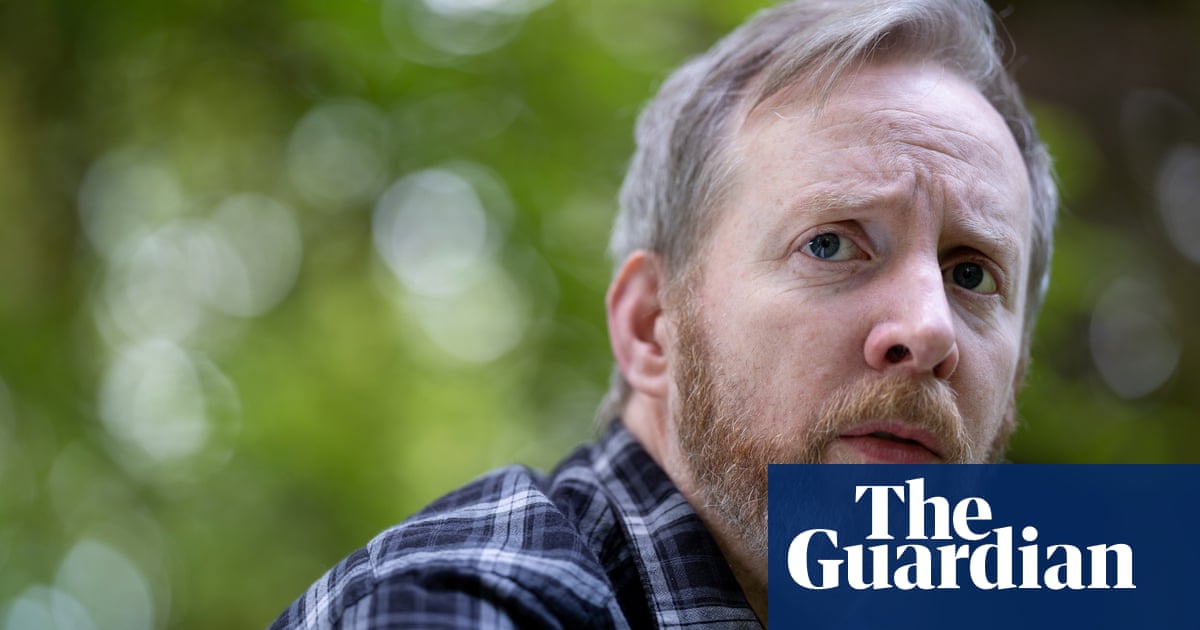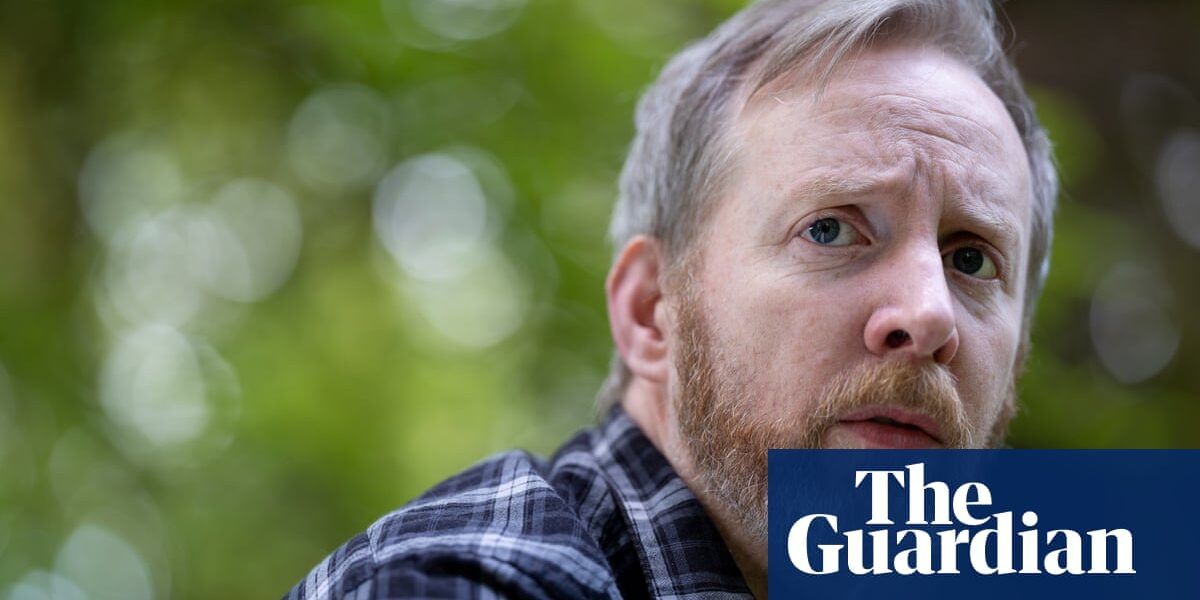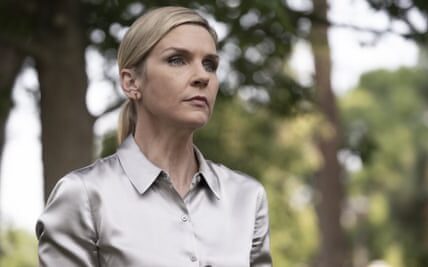
My earliest reading memory
My father taught literature and when I was young I liked to take the books down from the shelves in his study and look through the covers. Design in the 1970s leaned hard into surrealism – eyes on lighthouses and so on. The cover of A Clockwork Orange I remember finding particularly freaky. Also Saul Bellow’s name. How could someone be called Saul Bellow? I imagined him as a bear-like man with a huge beard and flaring nostrils. As to my own reading, I loved Mr Men and Olga da Polga, but the book that obsessed me was a big hardback of Grimms’ Fairy Tales. The stories were significantly scarier than the Ladybird versions, and accompanied by beautiful, terrifying illustrations. I vividly remember a picture of the devil in a graveyard, leaping through the air, almost as frightening as the imaginary Saul Bellow.
My favourite book growing up
I remember my mum coming home one day with The Warlock of Firetop Mountain. It was the first of the Fighting Fantasy series, sword-and-sorcery quests in which the reader was the hero. You had to make decisions and turn to a different page accordingly. This seemed to me both a natural progression from conventional narrative and a mind-blowing rupture. I went on to read at least 30 of these books, which left me with a deep knowledge of different species of orc and an affection for writing in the second person.
The book that changed me as a teenager
The Chocolate War by Robert Cormier is set in a Catholic school for boys, not unlike my own, where the authorities and bullies collude to manipulate and destroy one of the kids. Cormier wrote it for adults and he does not sugarcoat things. It’s a supremely dark novel about conformity, complicity, the abuse of power – how people are capable of almost anything, as long as they feel it’s what everyone else is doing. When I was 14 it felt like the first book that told me the truth.
The book that made me want to be a writer
Jayne Fisher, when she wrote The Garden Gang, was only nine years old. I was deeply impressed by this when I was a child. Then, as my ninth birthday came and went without any sign of a publishing deal, I became deeply envious. Later, in college, I bought Lorrie Moore’s debut, Self-Help. I was trying to write stories but deeply unsure whether my experience – suburban, middle-class – deserved representation. My writing had a lot of jokes, furthermore, which seemed to weigh against it. Self-Help’s world looked a lot like mine. I loved the way Moore ironised the blandness, used jokes to push darker themes and tones. It was fun to read, while also capable of tremendous power. Also, it’s written in the second person, though I believe that’s the only thing it has in common with The Warlock of Firetop Mountain.
The book I came back to
When I was 18 I went Interrailing and I remember trying to read Gustave Flaubert’s Madame Bovary on a night-train to Kraków while my friend Eamon smoked cigarettes in the seat opposite and listened to the Jesus and Mary Chain. It really wasn’t the right time or place for a novel about the follies of romanticism; to me it seemed that Flaubert had just got things fundamentally wrong. Many years later I read Lydia Davis’s translation. It was hilarious.
The book I reread
I don’t tend to return to books. One of the gifts of being a dad though is that you have someone to read to, and a chance to revisit old favourites. The Mouse and His Child, The Phantom Tollbooth and Watership Down were all hits.
The book I could never read again
In my early 20s, I imagined adult life as mysterious, soulful, full of lush sensuality and profound transition and gravitated towards books that seemed to confirm that, by writers such as Gabriel García Márquez and Milan Kundera. Growing older, I found that life mostly isn’t mysterious, and that by and large people don’t change into angels or rainbows – in fact, apart from the growing older, they don’t really change much at all. I started to feel that to create their vision those writers were leaving important things out. I never went back to them.
The book I discovered later in life
Well, it’s always later in life, I guess, but I’m still discovering, so that’s some consolation. One recent find: The New Directions Anthology of Classical Chinese Poetry, a collection of translations by American poets from Ezra Pound to Gary Snyder. They return to the same motifs again and again – parting from a friend, being exiled from the emperor’s court, loneliness, growing vegetables. In some ways the T’ang poets were the original Sad Dads.
The book I am currently reading
Family Lexicon, Natalia Ginzburg’s memoir of her family before, during and after Mussolini. It’s an absolute joy, and like Lorrie Moore a reminder of the power of humour to beguile us the better to drop the hammer later on.
after newsletter promotion
My comfort read
For comfort I generally go to TV. With books I find myself wanting a challenge, a fresh way of thinking. I’m often struck by how weird and singular books can be. A great novel doesn’t fit a template, it’s not just another consumer experience put together by a corporation. It’s coming to you direct from another human heart. That can be discomforting, but at times when the world seems small and full of hatred, it can be a lifeline.
Source: theguardian.com


